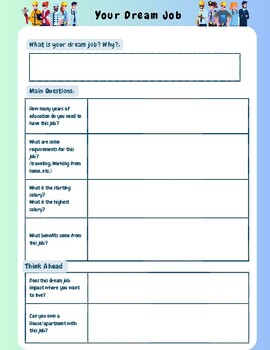An elementary education degree opens doors to a world of rewarding career opportunities in the field of education. This degree equips individuals with the knowledge, skills, and dispositions necessary to effectively teach and nurture young learners. In this comprehensive guide, we will delve into the various types of jobs available with an elementary education degree, highlighting the benefits and career advancement options associated with this field. We will also explore additional skills and qualifications that can enhance your employability and make you a standout candidate in the job market.
Types of Jobs Available with an Elementary Education Degree
An elementary education degree opens doors to a wide range of rewarding career opportunities in the field of education. Here are some of the most common types of jobs that elementary education graduates can pursue:
Classroom Teacher
The most common job for elementary education graduates is classroom teacher. Classroom teachers are responsible for planning and delivering instruction to students in grades K-5. They work with students to develop their academic, social, and emotional skills. Classroom teachers may also be responsible for extracurricular activities, such as clubs or sports teams.
- Plan and deliver lessons to students in grades K-5
- Work with students to develop their academic, social, and emotional skills
- May be responsible for extracurricular activities, such as clubs or sports teams
Special Education Teacher
Special education teachers work with students who have disabilities. They provide specialized instruction and support to help students with disabilities reach their full potential. Special education teachers may work in a variety of settings, including regular education classrooms, special education classrooms, and resource rooms. Supporting Students With ADHD in Elementary Classrooms
- Work with students who have disabilities
- Provide specialized instruction and support to help students with disabilities reach their full potential
- May work in a variety of settings, including regular education classrooms, special education classrooms, and resource rooms
Instructional Coach
Instructional coaches work with classroom teachers to improve their teaching practices. They provide feedback, support, and professional development opportunities to help teachers become more effective in the classroom. Instructional coaches may also work with administrators to develop and implement school-wide educational programs. Building Effective Communication Skills in Young Learners
- Work with classroom teachers to improve their teaching practices
- Provide feedback, support, and professional development opportunities to help teachers become more effective in the classroom
- May work with administrators to develop and implement school-wide educational programs
| Job Title | Responsibilities |
|---|---|
| Classroom Teacher | Plan and deliver lessons, work with students to develop academic, social, and emotional skills |
| Special Education Teacher | Work with students with disabilities, provide specialized instruction and support |
| Instructional Coach | Work with classroom teachers to improve teaching practices, provide feedback and support |

Benefits of Pursuing an Elementary Education Degree
Job Security and Stability
Elementary school teachers are always in demand. There is a constant need for qualified teachers to work in public and private schools across the country. This means that elementary education graduates can enjoy job security and stability throughout their careers.
| Benefit | Description |
|---|---|
| Job Security | Elementary school teachers are always in demand |
| Stability | Elementary education graduates can enjoy job security and stability throughout their careers |
Opportunities for Advancement
Elementary education graduates have a variety of opportunities for advancement in their careers. They can move into administrative roles, such as principal or superintendent. They can also become curriculum developers or teacher trainers. With additional education, they can even earn a doctorate in education and become a professor.
- Administrative roles (principal, superintendent)
- Curriculum developers
- Teacher trainers
- Doctorate in education and become a professor
Career Opportunities for Elementary Teachers

Career Advancement Opportunities for Elementary Education Graduates
Leadership Roles in Education
Elementary education graduates who are interested in leadership roles may pursue careers as principals or superintendents. Principals are responsible for the day-to-day operation of a school, while superintendents oversee the entire school district. Both principals and superintendents must have a strong understanding of curriculum and instruction, as well as the ability to work effectively with teachers, parents, and the community. Career Opportunities for Elementary Teachers
| Leadership Role | Responsibilities |
|---|---|
| Principal | Day-to-day operation of a school |
| Superintendent | Oversee the entire school district |
Curriculum Development and Teacher Training
Elementary education graduates who are passionate about curriculum development may pursue careers as curriculum developers or teacher trainers. Curriculum developers are responsible for creating and evaluating учебные программы, while teacher trainers provide professional development to teachers. Both curriculum developers and teacher trainers must have a deep understanding of curriculum and instruction, as well as the ability to work effectively with teachers and other educators.
- Create and evaluate учебные программы
- Provide professional development to teachers
Professional Development for Elementary Teachers

Additional Skills and Qualifications that Enhance Employability
Certifications and Professional Development
Earning certifications and participating in professional development opportunities can demonstrate your commitment to your profession and enhance your skills. Consider pursuing certifications in areas such as special education, English as a second language (ESL), or educational technology. Attending workshops and conferences can also help you stay up-to-date on best practices and connect with other educators.
- Special education certification
- English as a second language (ESL) certification
- Educational technology certification
Professional Development for Elementary Teachers
Technology Skills
Technology skills are increasingly important for elementary education teachers. Being proficient in using computers, tablets, and other devices can help you create engaging lessons and manage your classroom more effectively. You should also be familiar with educational software and online resources.
| Skill | Description |
|---|---|
| Computer literacy | Using computers, tablets, and other devices |
| Educational software | Using software to create lessons and manage classrooms |
| Online resources | Using online resources to find lesson plans and other materials |

Final Thought
Pursuing an elementary education degree is an investment in a fulfilling and impactful career. With a wide range of job opportunities, excellent benefits, and ample opportunities for career advancement, this degree empowers individuals to make a positive difference in the lives of young learners. By embracing additional skills and qualifications, graduates can further enhance their employability and reach their full potential in the field of education.



